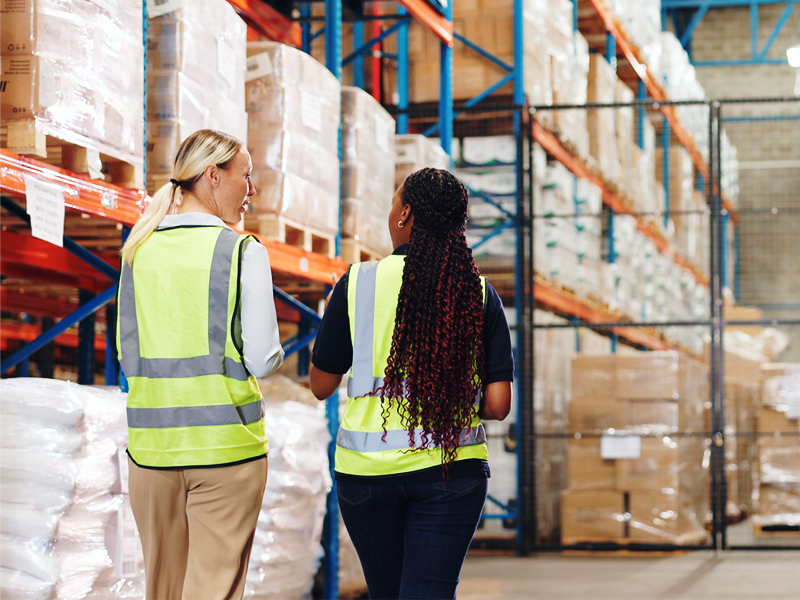
Just how much change can happen in one year? The past 12 months have been incredibly volatile, with political, economic, technological, social, and environmental disruptions creating both challenges and opportunities for companies. BSR and GlobeScan’s State of Sustainable Business Survey 2017—our ninth annual survey of BSR members—explores what these changes mean for sustainable business.
The great news is that BSR members remain steadfast in their commitment to sustainability and recognize that business must play the leading role in advancing sustainability in the future. The question, therefore, is: How can business lead in this dynamic environment?
The State of Sustainable Business Survey, released today, includes responses from nearly 300 business leaders representing 151 global companies—more than 60 percent of BSR’s global membership network.
Interestingly, when asked about priorities for the sustainability function in 2025, most respondents said they expect to focus on the same kind of activities they are addressing today. But given the rapid pace of change, this will not be enough. To address the needs of 2025, businesses will need to evolve their sustainability efforts. Today’s incremental approach to improvements will be insufficient.
The world is changing, and to keep pace, sustainability strategies must as well.
For example, less than a quarter of respondents said they believe addressing implications for workers due to automation/technology will be a high priority. Yet we know that labor is undergoing a profound transformation across nearly every sector, from retail to manufacturing. This means current activities on worker rights will need to change dramatically. Similarly, only 16 percent of survey participants said that responding to crises will be a high priority, and only a third said they believe scenario planning will be important.
At BSR, we believe both activities will be essential for sustainability teams. It is time to redefine sustainable business with a new agenda, a new approach, and a new voice.
As we think about redefining sustainable business for the future, we know that it will include different issues and different partners. In terms of issues, it has become clear that basic economic fairness must be intertwined with sustainability. That’s why BSR is working with business to drive a more inclusive economy—one that enables all individuals and communities to participate in, benefit from, and contribute to the economy.
We were pleased to see that nearly two-thirds of respondents are prioritizing inclusive growth within their companies—a 7 percent increase over last year. Yet that means that one-third of respondents still have not made the connection between sustainable business and inclusive growth. And even among those who have, there is a huge opportunity to invest in areas that will drive the most impact. For example, 78 percent of those companies place low or no priority on locating facilities in areas of high unemployment, and only 14 percent place a high priority on influencing governments for more inclusive public policy. Last week, my colleague Susan Winterberg shared some great examples of how business can lead on driving inclusive growth, from improving retail jobs to impact sourcing.
In terms of different partners, sustainability practitioners have long focused on external collaboration and engagement, with peer companies, NGOs, multilaterals, and others. These partnerships have been critical in creating systemic change. But there is a clear opportunity for companies to integrate sustainability across more internal functions. This is happening in some companies, especially with CEOs and supply chain or procurement teams, but not with some critical internal functions. More than 60 percent of respondents state that customers/consumers, investors, employees, and governments influence their sustainability agenda. Yet those same respondents are not integrating with the key internal partners most likely to influence those key stakeholders. For example, less than 10 percent of respondents prioritize close partnerships with marketing, investor relations, or public affairs. And they prioritize human resources, at 12 percent, only slightly more.
While every organization has its own unique structure, deeper partnership inside companies with these key functions will be essential to achieve greater progress. For example, Intel’s corporate responsibility team has worked for many years with investor relations and corporate governance to drive an integrated approach with investors on ESG. And BSR’s Sustainable Lifestyles Frontier Group—AT&T, eBay, Johnson & Johnson Consumer Inc., McDonald’s, and Walmart—recently published "Big Brands, Big Impact: A Marketer’s Guide to Behavior Change."
As we get ready for BSR’s 25th Anniversary Conference, I look forward to discussing how companies can redefine sustainable business to meet the challenges of the future, and how we can rethink our approach to change inside and outside companies.
We have finally reached the point where there is no question if business will lead. Now we must answer how.
Topics
Let’s talk about how BSR can help you to transform your business and achieve your sustainability goals.








